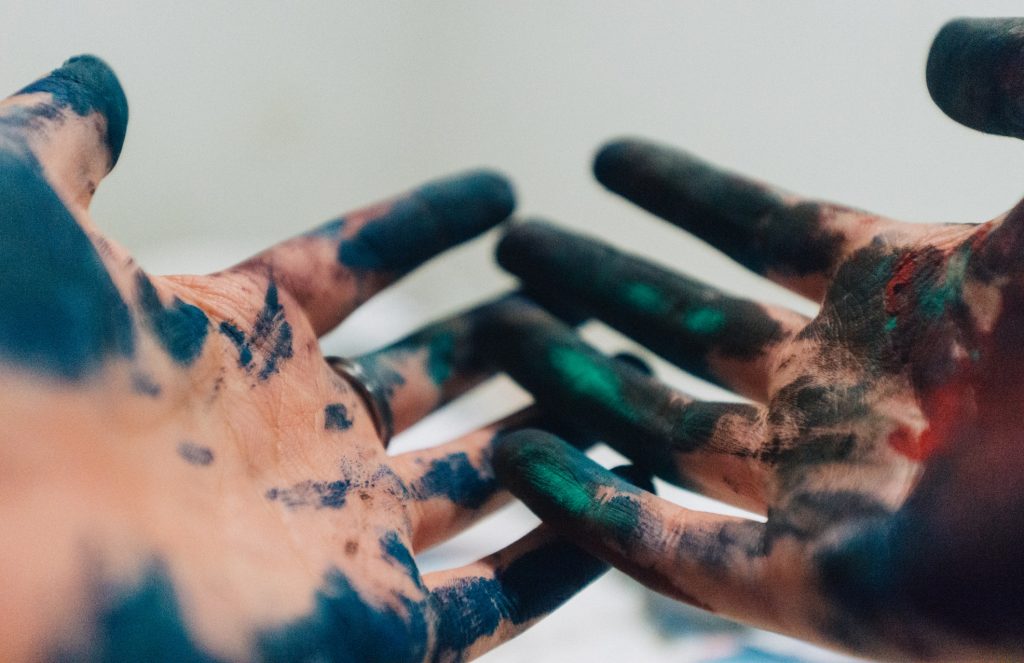
How should we tackle art within the context of self-care or self-help or the art we create for ourselves rather than the world?
Art – more specifically, written art – within my coursework is frequently alluded to less as a self-edification practice specifically because we are not focused on the creation of art so much as we are the analyzation of the resulting piece.
I’ve seen this mentioned in random posts on the internet, whispers that art and other creative hobbies need not be focused on the production of a higher artistic piece. Rather, use art and hobbies simply for the fun of it.
This idea doesn’t feel as though this is a “valid” mindset within American culture. It goes against the grain, allows the person to practice things without expecting a profitable outcome.
Art as some high ideal, or as a perfect product for selling, is a taxing undertaking.
Art as a thing which must be consumed and therefore focuses on the consumer. What it demands is an interesting side-effect of our capitalist society, wherein we are encouraged to squeeze the monetary value of everything as much as possible, often for our survival.
As a result, I know that my personal experience with written art is much less about me, as the creator. It is largely a practice completely obsessed with the metaphorical reader.
I’ve slowly started writing on the side, just for myself. It’s not as much as I’d like, given that coursework takes precedence over hobbies, and writing creatively can be too much like essay writing: an uncomfortable dance.
I don’t really want to think about a reader. Quite frankly, I don’t want to care about them either.
If I am to believe that anyone can write a great novel, then I am also at liberty to assume that anyone can write a novel that is average and suits themselves and their artistic desires.
I am more likely to enjoy the latter far more than the former. I want to understand why we are, as a society, pressured to create the greatest pieces. I want to understand why the greatest pieces are superior to the average counterparts, and what it even means to be great or average – who creates the standards for good, average and bad art?
Part of the desire for greatness probably stems from a good helping of toxic nationalism, the over-abundance of pride in our nation and a feeling that our nation must be the best in everything.
Fine, let’s consider the best. How are we going to define what is
I believe the next wave of art, in general, will be more interactive within this strange space of universal spectatorship and universal capability. I also am interested in seeing the wave of self-help lean into artistic endeavors for personal growth or healing.
What standard of beauty will be attached to a painting created in response to a panic attack? A short story inspired by a personal discomfort, however severe or random? Do you create art if it is for yourself only?
I don’t know the answers to any of these questions. I just know that I shy away from starting new hobbies because I dislike that I will not be immediately spectacular and that with any new artistic endeavor, I feel much pressure to fixate upon cultivating an experience for someone else, some distant, gluttonous reader.
We ought to practice focusing on creation for our own sakes, and, if applicable, for the sake of our own personal health. It doesn’t need to replace the urge to create great things – if anything, I believe these can coexist.
In my personal experience, the enjoyment of creation has been negatively affected by thoughts of what other people want. I leave some ideas unexplored because I wonder if anyone will read it besides myself.
The anxiety surrounding an audience for artistic pieces has its place. However, in assigning it spaces of existence, it also earns places where it doesn’t need to exist.
Part of taking care of yourself is navigating these spaces and finding out what works for you and what doesn’t. Maybe it’s selfish to focus only on yourself and your own pleasure.
We do not fault the reader for reading for their own pleasure, just as we do not fault people who listen to music they enjoy or look at art they can appreciate.
We should not fault creators for this same self-interest.
